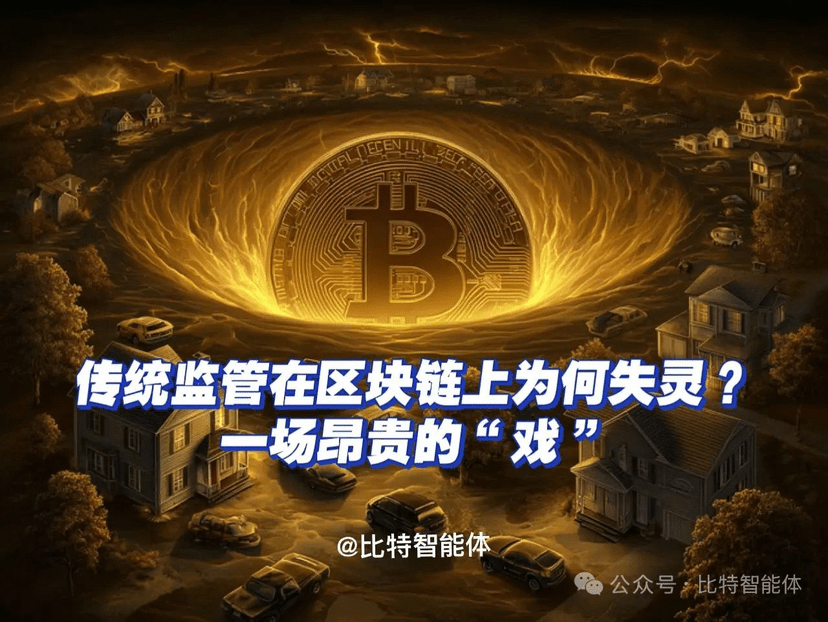
You may have heard of Bitcoin and Ethereum, and you may have heard that governments around the world are strengthening regulations on cryptocurrencies. But what you might not know is that the regulatory landscape for the crypto world in 2025 looks like an expensive game where everyone is acting, but they all know it is a joke.
Why is this happening? Because the traditional regulatory system has almost completely failed in the decentralized blockchain world.
Travel Rule: A ridiculous 'regulatory farce'
To understand this 'joke', we must start with something called the 'Travel Rule'.
In 1996, when the internet was still dial-up, the US required banks to transmit the remitter's information when processing wire transfers over $3,000. This worked well in a centralized banking system because banks have complete customer information, and there is a standardized system for information transmission (like SWIFT).
However, by 2019, an international organization called FATF (Financial Action Task Force) made a decision: to extend this rule to the cryptocurrency field. They believed that since it works in traditional finance, it should work in the crypto world.
The problem with this logic is that they completely do not understand how blockchain works.
The core of blockchain is 'decentralization' and 'peer-to-peer transactions'. When you transfer between centralized exchanges (like Binance, Coinbase), there might still be intermediaries that can execute the Travel Rule. But when you transfer directly between your own wallets (like MetaMask), there are no intermediaries at all. You are interacting with a piece of code, a network protocol.
Asking code or network protocols to perform identity verification and information transmission is as absurd as asking air to enforce laws.
Why is the Travel Rule considered a farce?
* Rules are chaotic and cannot be implemented
Countries have introduced their own versions of the Travel Rule, with varying thresholds and standards. For example, the threshold in the US is $3,000, in the EU it is 1 cent, and in Japan, it applies to all transactions. This means that a transfer from the US to the EU may be compliant in the US but non-compliant upon reaching the EU, causing the transaction to get stuck.
* Criminals easily bypass
Real criminals do not care about the Travel Rule at all. They will split large transactions into countless smaller transactions below the threshold, commonly known as the 'Smurfing' tactic. This year's largest cryptocurrency theft case saw North Korean hackers steal $1.46 billion, which was not affected by the Travel Rule at all.
* High compliance costs
Implementing the Travel Rule is a tremendous expense. Medium-sized exchanges may have to pay millions of dollars a year for this. This cost will ultimately be passed on to ordinary users, making you bear higher fees, more complicated processes, and longer reviews.
* Stifling innovation
For crypto startups, high compliance costs and complex rules discourage them. They have to spend a lot of time and money solving compliance issues instead of focusing on technological innovation. This leads to either stagnation of innovation or a shift to regions with looser regulations.
What we need is 'intelligent regulation'
Traditional regulatory tools are like rules for managing horse-drawn carriages, yet they are awkwardly applied to managing cars. This is not only inefficient but may also create more chaos.
This does not mean we do not need regulation. The original intention of regulation is good — to prevent money laundering and protect investors. But we cannot use the wrong tools to achieve the right goals.
Future regulation should not be about mandating the disclosure of personal information, but rather leveraging the blockchain's characteristic of 'openness and transparency'. For instance, through professional on-chain data analysis, suspicious transactions can be tracked and criminal activities identified without knowing everyone's ID numbers.
This is a 'paradigm shift' that requires the joint efforts of regulators and practitioners. What we need is smarter governance, not stricter rules.
Pandora's box has been opened, and the decentralized world will not return to the past. What we should think about is not how to close it, but how to find balance in this new world.
Current crypto regulation is like an expensive 'show', everyone knows it is a joke but has to continue performing. And we ordinary users ultimately have to pay for this 'show'. I hope that when history looks back, it will not record this era as 'humanity once had the opportunity to establish a more open, transparent, and efficient financial system, only to be strangled by the thinking of the old era.'

